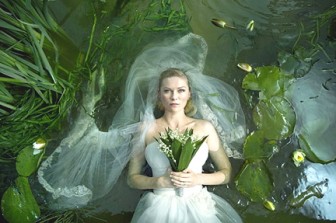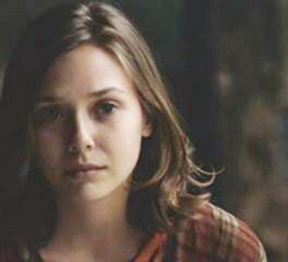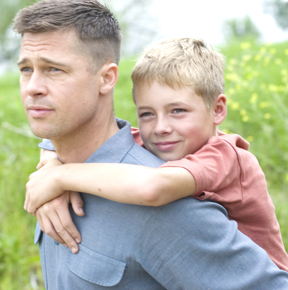(Time Magazine) The list is not about perfection, it’s about the experience the movies provide.
10. Margaret – Kenneth Lonergan’s talky, much delayed film about a self-absorbed teenaged Manhattanite (a brilliant Anna Paquin) whose accidental contribution to a woman’s death sends her on a quest for peculiar justice is hardly a smooth ride. It bumps along in patches and meanders in others, but when it gathers steam becomes an unforgettable force of startling emotional intelligence.
9. Contagion – Back in 2000 it took Steven Soderbergh 147 minutes to place drugs into a global context in Traffic. Here he briskly handles a world plague in 106 minutes without missing a beat, thanks in no small part to Scott Z. Burns’s extraordinarily streamlined screenplay. The star power is huge — Matt Damon, Kate Winslet, Gwyneth Paltrow, Jude Law — but a terrible, destructive flu is the true lead, with modern technology and speed-of-light communication playing supporting roles. Contagion is basically a horror movie, but it was still pure Soderbergh. His people behave abysmally, they abuse the earth and each other, but enough good always surfaces to make you feel the possibility of a hopeful future.

8. Meek’s Cutoff – Seven emigrants lost in the Oregon High Desert grow justly paranoid that their guide, a pontificator named Meek (Bruce Greenwood), may be as new to this land as they are. “Is he ignorant, or just plain evil?” wonders Emily Tetherow (Michelle Williams, as great as she was in My Week With Marilyn). “That’s my quandary.” It’s 1845; an encounter with a mysterious Native American might either represent absolute ruin or hope.

7. Young Adult – The fearless Charlize Theron as wicked, superficial, mean Mavis Gary is as riveting as she was in Monster. Patton Oswalt? He’s an entire Alexander Payne movie* in one man. The movie’s message is you can go home again, but be prepared to meet yourself there. Trust that what happened in Mercury isn’t going to stay in Mercury.
6. Martha Marcy May Marlene – This was the year of the ambiguous ending, and if that drives you crazy, avoid Like Crazy, Meek’s Cutoff and this film. Elizabeth Olsen came out of nowhere – well, technically from the same loins that delivered us the Olsen twin conglomerate – to play a cult escapee still half in its sway. She frustrates her sister and her uptight husband, strips at the worst moments and is overflowing with dark secrets about the commune she fled, particularly about its leader (John Hawkes). Prettier than any movie this scary has a right to be, the movie cuts right to the heart of a multitude of modern fears that have nothing to do with actual cults, including the big one; is the life you’re leading the right one? And is danger always right with you, perhaps in the car behind you?

5. Moneyball – What a smooth pleasure from Capote director Bennett Miller. The Social Network’s Oscar-winning scribe Aaron Sorkin was one of several who took a turn at the screenplay, and likely he deserves some of the credit for the speed, humour and glee that permeated this adaptation of Michael Lewis’ book about the supposed numerical salvation of the Oakland A’s. But Moneyball was riveting because it dealt as much in failure as in success; the A’s field of dreams is located a few yards from a busy freeway in a permanently downtrodden city. What stands out in retrospect is less the cleverness of Peter Brand’s (Jonah Hill) methods but rather Billy Beane (Brad Pitt) noshing on Twinkies, being at best a quarter-time dad to his young daughter, too nervous to actually watch his team play and never, ever forgetting what it was like to choke in the big leagues. Moneyball was all-American, but not in the traditional sense.
4. Certified Copy – The year’s most slippery, hard-to-define film is superficially just a conversation between two people, a volatile Frenchwoman (Juliette Binoche) who runs an antique shop in Tuscany and a smug English writer (opera singer William Shimell) who has just published a book about the value of original art works versus reproductions (he thinks a copy is just as good as the real thing). They drive, they walk, they almost have dinner. These two could be new acquaintances or an embittered married couple — as the film shifts under our feet they make a convincing case for both.
3. The Tree of Life – Naturally it was beautiful and painterly; Terrence Malick knows no other way of making movies. But The Tree of Life’s power derived from the way it felt like the murmur of memory, a childhood remembered in all its small and big dramas. Brad Pitt loomed so large, a father to be feared and admired in equal parts while Jessica Chastain hovered dreamily, a model of mid-century maternal perfection. And the pack of boys with crew cuts, dirty knees, mosquito bites, sticky fingers? They were all of us.
2. The Artist – What’s black and white, soundless and aroused the year’s greatest film debate? The backlash against Michel Hazanavicius’s sumptuous period piece about Hollywood’s transition from silent film to talkies included grumbling that it was too charming, too slight, too gimmicky. The initial tidal wave of love for it out of Cannes caused some viewers to expect a life changing experience, while others shifted into grumpy cool mode, i.e., it couldn’t possibly be all that.
1. Melancholia – Lars von Trier’s deceptively languid take on the possibility of apocalypse, seen through the eyes of a depressive (Kirsten Dunst) and her fussy sister (Charlotte Gainsbourg), both of whom were much more fun than they sound. This film actually comes to terms with man’s place in the universe, with surprising humility. Melancholia is funny, brave, unwavering and overwhelmingly beautiful.
And the 10 worst: 1. Jack and Jill; 2. Sucker Punch; 3. Red Riding Hood; 4. Your Highness; 5. Zookeeper; 6. Trespass; 7. The Future; 8. I Melt With You; 9. Miral; and 10. Breaking Dawn.




